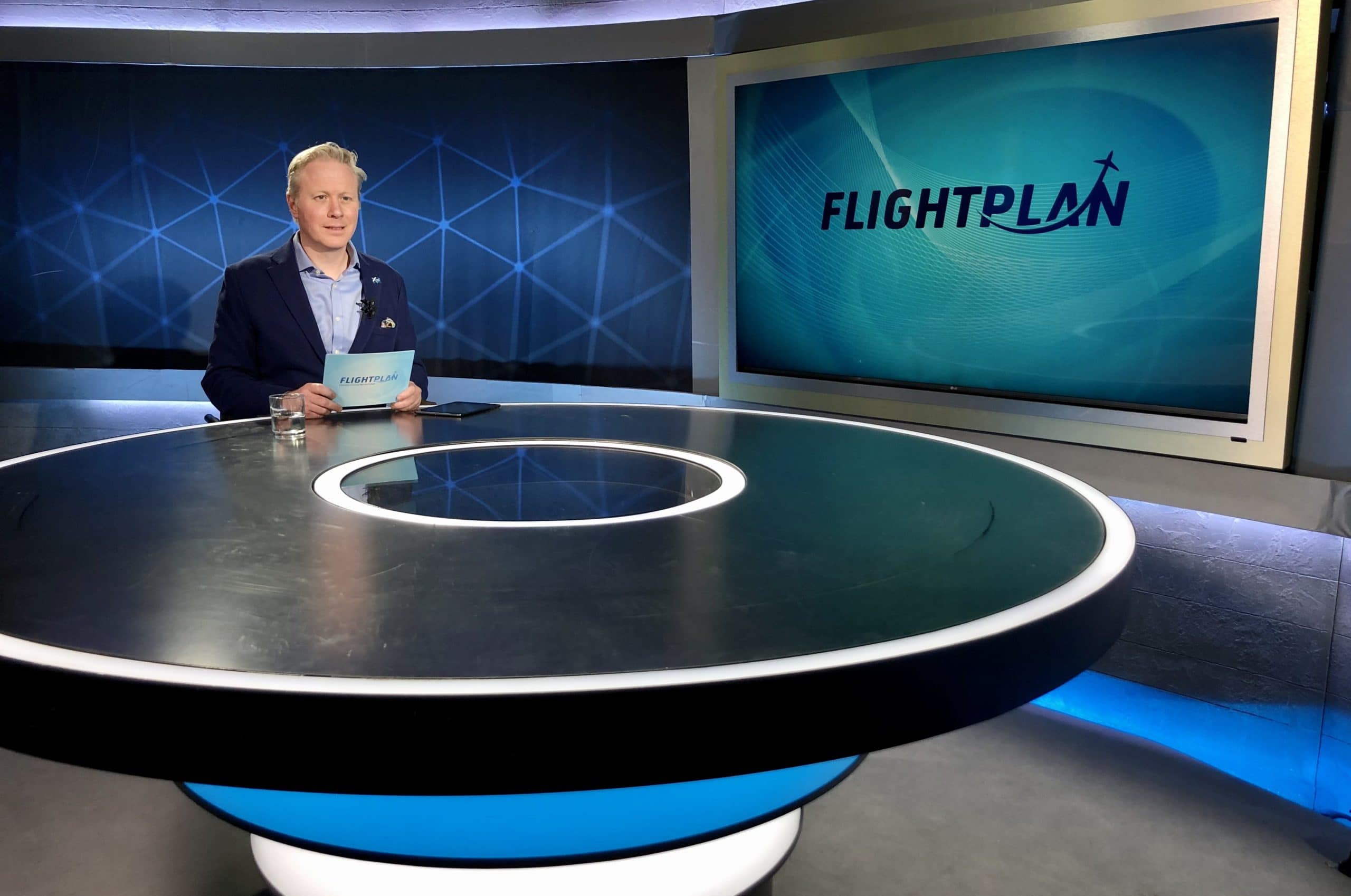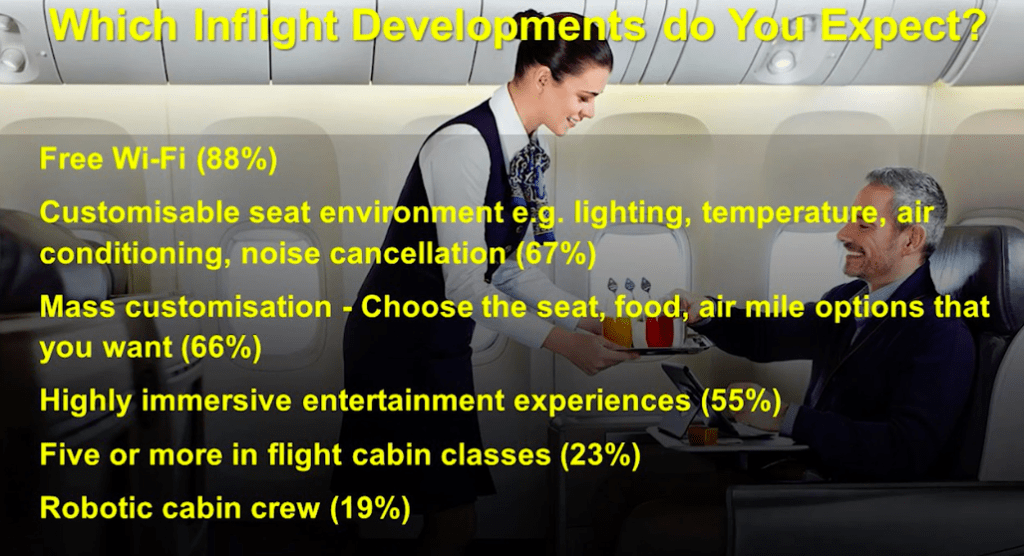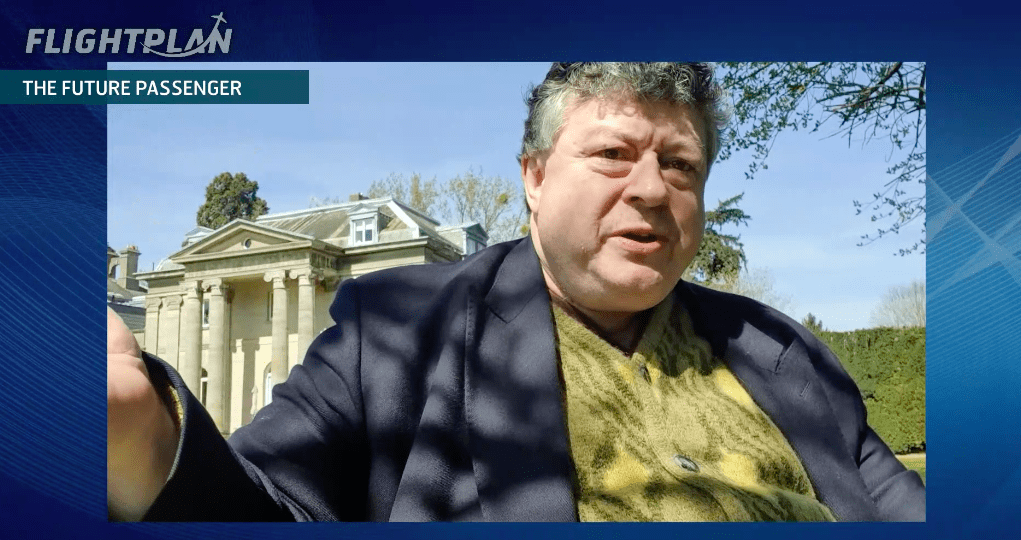FlightPlan: Aviation Leaders Debate the Feasibility of Free In-Flight Wi-Fi
Share

The FlightPlan online broadcast event hosted by Inmarsat, in collaboration with APEX, saw over 3,000 people from across 100 countries tune in to watch over 50 industry professionals exchange views on the present and future of aviation.
The FlightPlan online broadcast event hosted by Inmarsat in collaboration with APEX covered a wide range of topics throughout the day, related to COVID-19 and beyond, but a highlight was “The Great Wi-Fi Debate,” which involved a discussion about the long-term future of in-flight connectivity.
During the session, CEO of Fast Future Rohit Talwar presented new findings from a research study his company is undertaking together with Future Travel Experience (FTE), “Future Air Transport Strategies and Technologies,” about what the passenger experience will look like by 2035. While the full study won’t be released until the end of the summer, Talwar said 88% of respondents predicted that airlines would be offering free in-flight Wi-Fi.
The feasibility of free IFC was then addressed by different participants throughout the segment. Nathan Clapton, VP Inflight Media at Inmarsat Aviation, said that passengers are happy to “pay” for their Wi-Fi by offering up their data, which is worth more than covering the cost of connectivity. He further argued that free Wi-Fi acts as an “engagement driver,” that through their portals, “airlines can provide all kinds of contextual products and services, refresh and increase ancillary revenues and make passengers more loyal over time.”

Rory Sutherland, vice-chairman of Ogilvy, took a different stance. “The second you make in-flight Wi-Fi free; it goes from being a perk to an expectation. At the very least, have differential pricing for faster or slower Wi-Fi,” he said. Instead, Sutherland listed the different ways that airlines could use the offer of Wi-Fi, suggesting, “You could use it for yield management. If there’s a less popular flight at a less fashionable time of day, you could advertise free Wi-Fi to get people to shift from an overbooked flight to an under-booked flight without using a price incentive.”
Sutherland also said that airlines could offer a Wi-Fi plan not just for a number of hours, but for one or two years: “What you’ve created is like easyJet Plus or Amazon Prime, a kind of loyalty scheme.” Another idea was to bundle Wi-Fi in with checked baggage, or with other ancillary revenue streams, such as extra-legroom seats. “Not charging for it is OK, but giving it away for free is a different matter. Don’t do that,” he implored.

Another response from Fast Future and FTE’s research study showed that by 2035, passengers expect to see the option for mass-customization in the cabin, both in terms of their seating environment (67%) and their broader cabin experience (66%).
IFC undoubtedly comes into the mix here. Airlines have the task of catering to a host of different passengers, as evidenced by aviation analyst Alex Macheras outlining the needs of Generation Z and Alexis Hickox suggesting more needed to be done to accommodate millennial parents traveling with Generation Alpha children, perhaps in the form of multi-user, multi-device Wi-Fi packages for families. However, for David Fox, VP Inflight Services and Connectivity at Deutsche Telekom, the need for seamless access to IFC overrides the necessity for access to a range of different bundles and plans.
“If you make it seamless, you can’t give the customer a whole host of tariffs,” Fox said. He used the example of roaming data in Europe, explaining that in the past, people had a certain data/minutes bundle, but knew that when they crossed the border to another country, they would be charged excessive rates on everything. Fox said the result was that people simply switched off their roaming capability.
“You could advertise free Wi-Fi to get people to shift from an overbooked flight to an under-booked flight without using a price incentive.” – Rory Sutherland, Ogilvy
“We changed that over to a system where you could buy a fixed price pass that would give people access to a certain number of MB/GB,” he continued. “What happened was that customer behavior changed from fear about their bills to a complete overview … we drastically slashed prices, but because so many more people were using it, we were more than overcompensating for our revenues. This is something that can be transferred 1:1 over to the airline industry.”
In fact, Fox revealed that from May, European Deutsche Telekom customers will be able to access the FlyNet service offered across Lufthansa Group’s European routes free of charge as part of their subscription bundle. “This will drive take rates and really increase passenger satisfaction,” he concluded.
While FlightPlan highlighted a range of different opinions on how to go about best leveraging IFC, this is clear: FlightPlan’s “Great Wi-Fi Debate” continued to underline the industry-wide consensus that connectivity will remain a key aspect of airlines’ brand differentiation, passenger experience, loyalty and ancillary revenue strategies for years to come.
If you missed the FlightPlan event, or you’d like to watch it again, head to the FlightPlan broadcast page.


